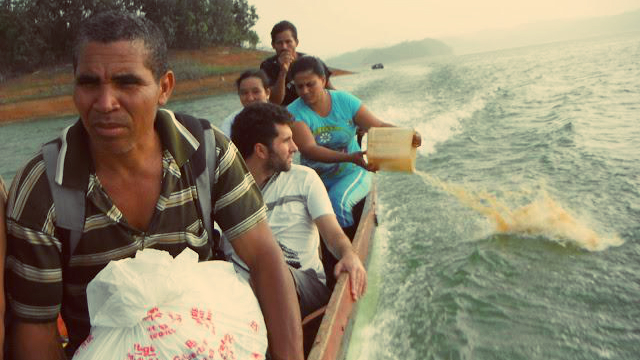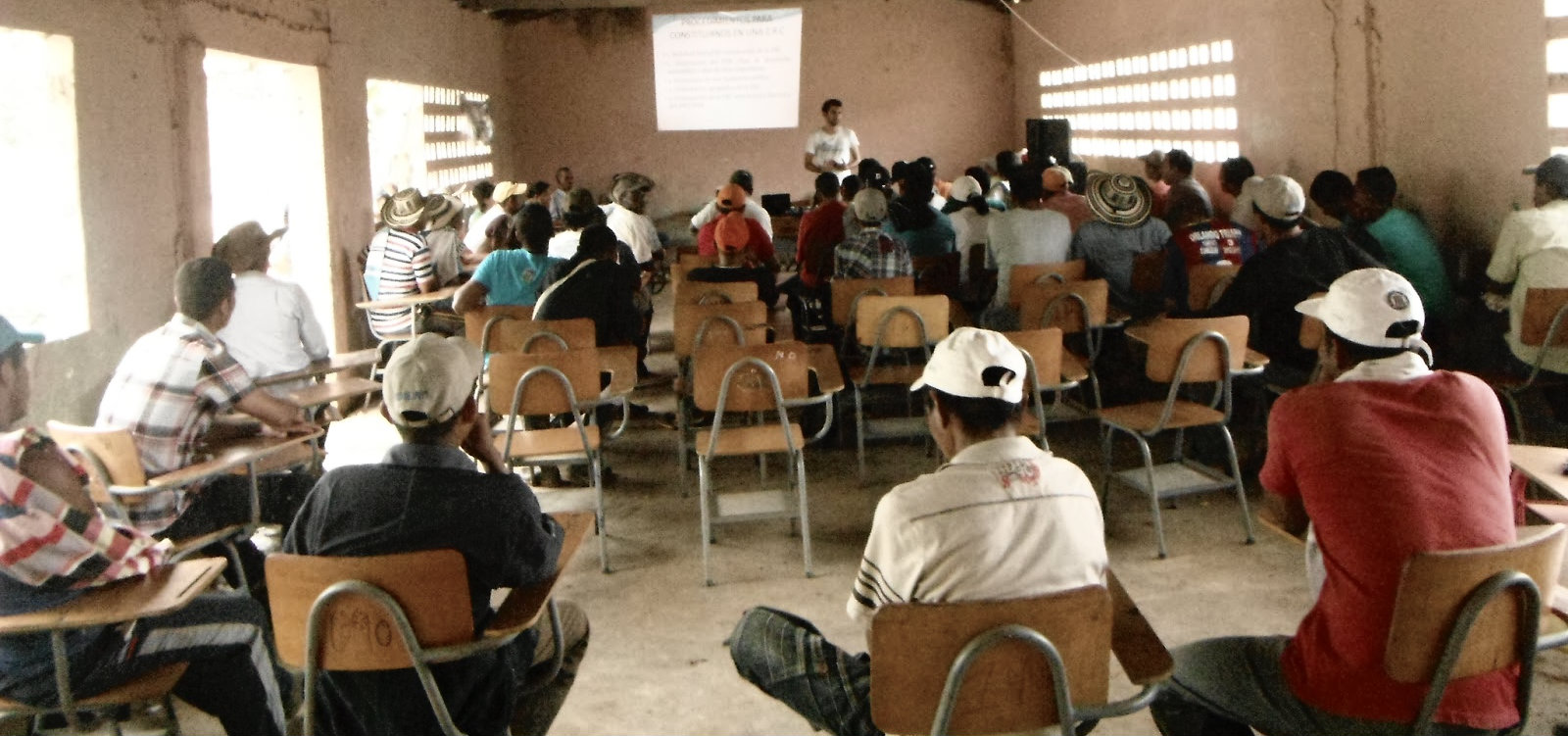CPTnet
24 April 2013
COLOMBIA: Navigating the future around a megaproject
 |
|
| Travelling upstream of the Urrá Dam on the Sinú River, Tierralta, Cordoba, Colombia |
by Stewart Vriesinga*
In early March, Christian Peacemaker Teams (CPT) Colombia accompanied representatives of team partner CAHUCOPANA to a rural area in Tierralta, Cordoba. Located near an artificial lake created by the
Urrá hydroelectric dam, the area is only accessible by water via the small port of
Frasquillo, guarded by checkpoints operated by the adjacent military base. Since
the dam’s construction, Frasquillo’s former residents must now vacate the area
before nightfall and not return until after sunrise.
Crucito, a fifty-minute trip by boat and bus from
Frasquillo, is the central community of forty area villages. Ironically, despite
the dam’s thirteen-year presence, they all lack electricity. A
handful of small gas-powered generators owned by local private businesses
provide the only electrical power.
 |
|
| Phase One, Urrá Hydroelectric Dam |
Before the dam, most communities
were accessible by road. Travel was cheaper, easier and less restricted. The fertile lowlands now under water were prime
farmland. Fishing, which used to provide sustenance
and income for many, is now all but lost since the dam blocks fish migration.
The communities are
seeking CAHUCOPANA’s help to organize in the face of threats by the various
armed actors and the imminent implementation of Phase Two of the
hydroelectric project. According to area residents, the military provides
security primarily for the dam, not them. Paramilitaries and FARC guerrillas vie
for control of the area’s drugs- and arms-trafficking corridor. Brutal
repression and the assassination of Kimy Pernia and other indigenous leaders
cleared the way for Phase One of the Urrá dam project back in 2000. Phase Two threatens even greater violence,
flooding, displacement and resource destruction.
During our four-day
visit, community leaders attended workshops organized by CAHUCOPANA on human
rights, leadership and Campesino Reserves (a federal land designation intended to protect rural culture and lifestyles from powerful economic
interests seeking control over local resources). They also planned a
Humanitarian Action in late April to draw national and international attention
to their situation.
 |
|
| Human Rights Workshop |
CPT’s aim, to increase
local security and autonomy, was tested on the first day. Together with local leaders
and CAHUCOPANA, we intercepted an armed group before they could interrupt the
workshops. They wore no insignias, but identified themselves as guerrillas. Our
message: Please leave ASAP. Why? First, they are a military
target whose presence endangers civilians. Second, authorities might attribute
the workshops to the armed group instead of as a civilian initiative, undermining
the credibility of resulting decisions.
Since CPT’s visit in March, promoters of the Humanitarian
Action, scheduled for 26-27 April, have been threatened, harassed, arrested, and even
assassinated. In addition, the military has planned a Civic Military Day in
Crucito on 26 April. This puts the community at higher risk of being linked to
the armed conflict. CAHUCOPANA and other organizations have issued three complaints denouncing violations
of International
Humanitarian Law and demanding that authorities call off the Civic Military Day
and ensure the freedom of movement and safety of participants in
the Humanitarian Action event as they give voice to their hopes to prevent further resource destruction by outside investors and megaprojects like the dam.
*This article was edited for length. The original can be viewed here.



